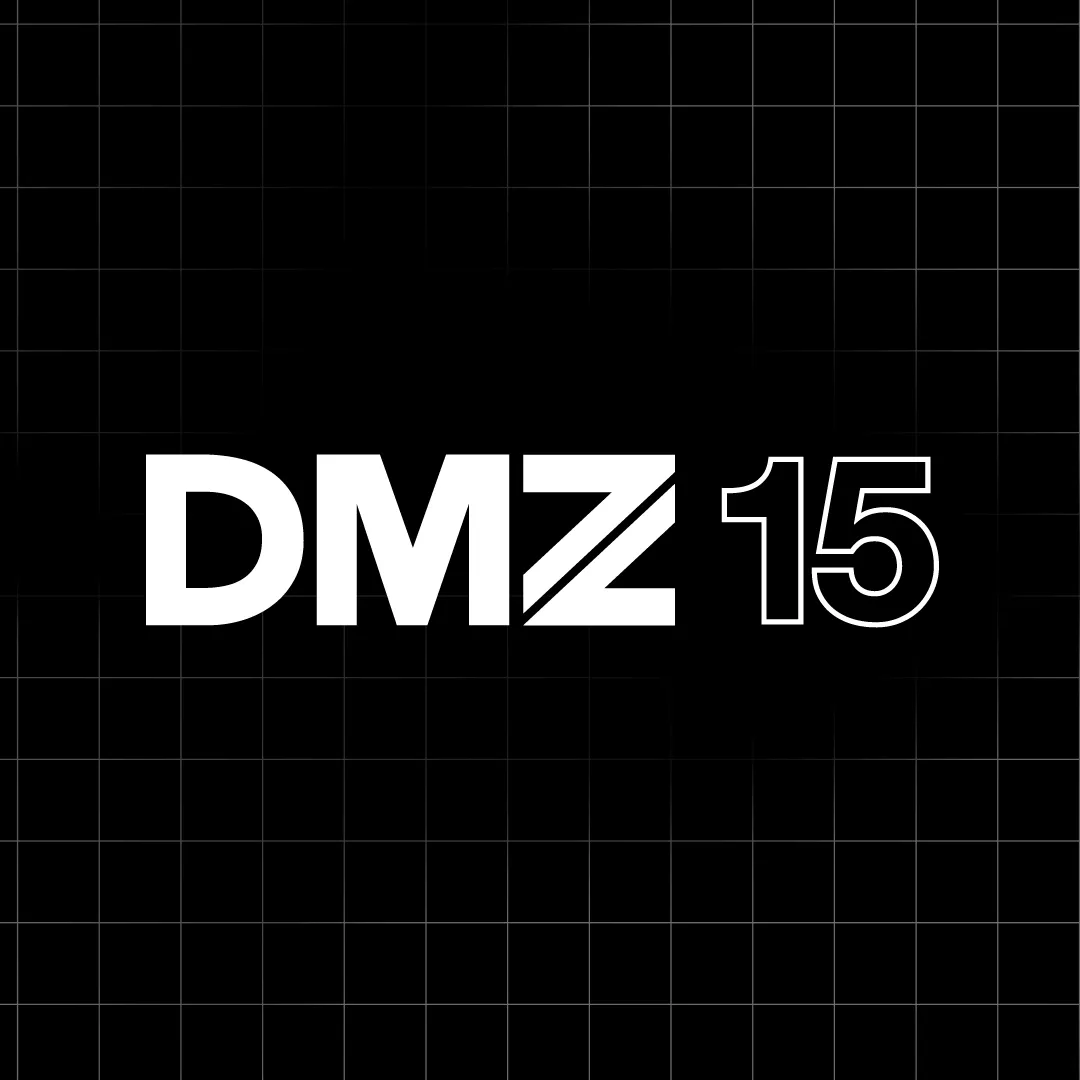What does it mean to be bold in an ecosystem built on big ideas?
By Abdullah Snobar, Executive Director of DMZ and CEO of DMZ Ventures
At Toronto Metropolitan University’s DMZ, bold isn’t about noise—it’s about guts. It’s about doing the hard things, the different things, the things that go against the grain, but push the whole ecosystem forward. As we mark 15 years of backing Canada’s most ambitious founders, we’re taking a moment to reflect on some of the defining decisions that shaped DMZ’s journey.
The kind that made people raise an eyebrow at the time... and clap a few years later.
#1 Betting on a new kind of classroom.
In 2010, long before student entrepreneurship was common on campuses, a TMU student was looking for support to launch a startup and found nothing. Instead of letting that go unnoticed, then-president of TMU, Sheldon Levy, along with Valerie Fox and Dr. Hossein Rahnama saw an opportunity. At a time when universities focused on preparing students for jobs, not helping them build companies, they chose to found the Digital Media Zone, now DMZ, giving students space to explore entrepreneurship when no blueprint existed. They didn’t wait for permission or to see how universities would approach entrepreneurship, they dove right in.
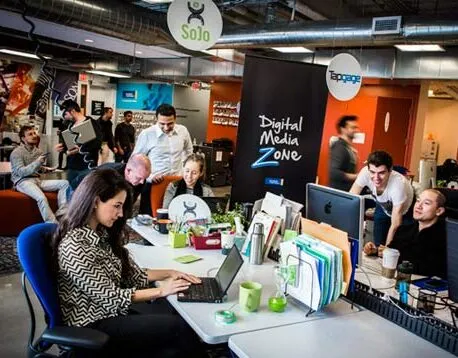
#2 Turning down $1 million to protect founders.
Just weeks into the role as Executive Director in 2015, I received an enticing offer: a $1 million donation to DMZ. But it came with conditions. The donor wanted DMZ to create a board, name them as chair and take equity from every startup that joined. It would have meant selling out the very founders DMZ was built to support. $1 million for us would have been a game changer this early on and while saying no wasn’t easy, it set the tone for everything that followed. Founders always come first.
#3 Expanding our impact beyond campus walls.
By 2015 DMZ had outgrown its role as a student co-working space. Startups needed more and we were ready to deliver. That same year I became Executive Director and made a shift, one that faced a lot of questions. We moved beyond offering space and leaned into real programming to help startups grow faster and stronger. The name shift to DMZ from Digital Media Zone and becoming sector agnostic reflected this evolution, but the bigger leap was redefining what a university-based incubator could do. We weren’t just serving students, we were supporting the world’s next great founders.
#4: Breaking ground not following trends.
In 2019, DMZ launched Canada’s first-of-its-kind initiative to address the lack of Black-led startups in the tech ecosystem. Our Black Innovation Programs (BIP) were built to help Black-led startups scale with the resources and backing they deserved. When we first pitched the idea, most ecosystem players weren’t on board. But with a core group of founding partners who believed in the mission, we pushed forward. One year later, the world caught up. The need to level the playing field was no longer a debate but a demand. DMZ didn’t wait for that moment; we were already building it.
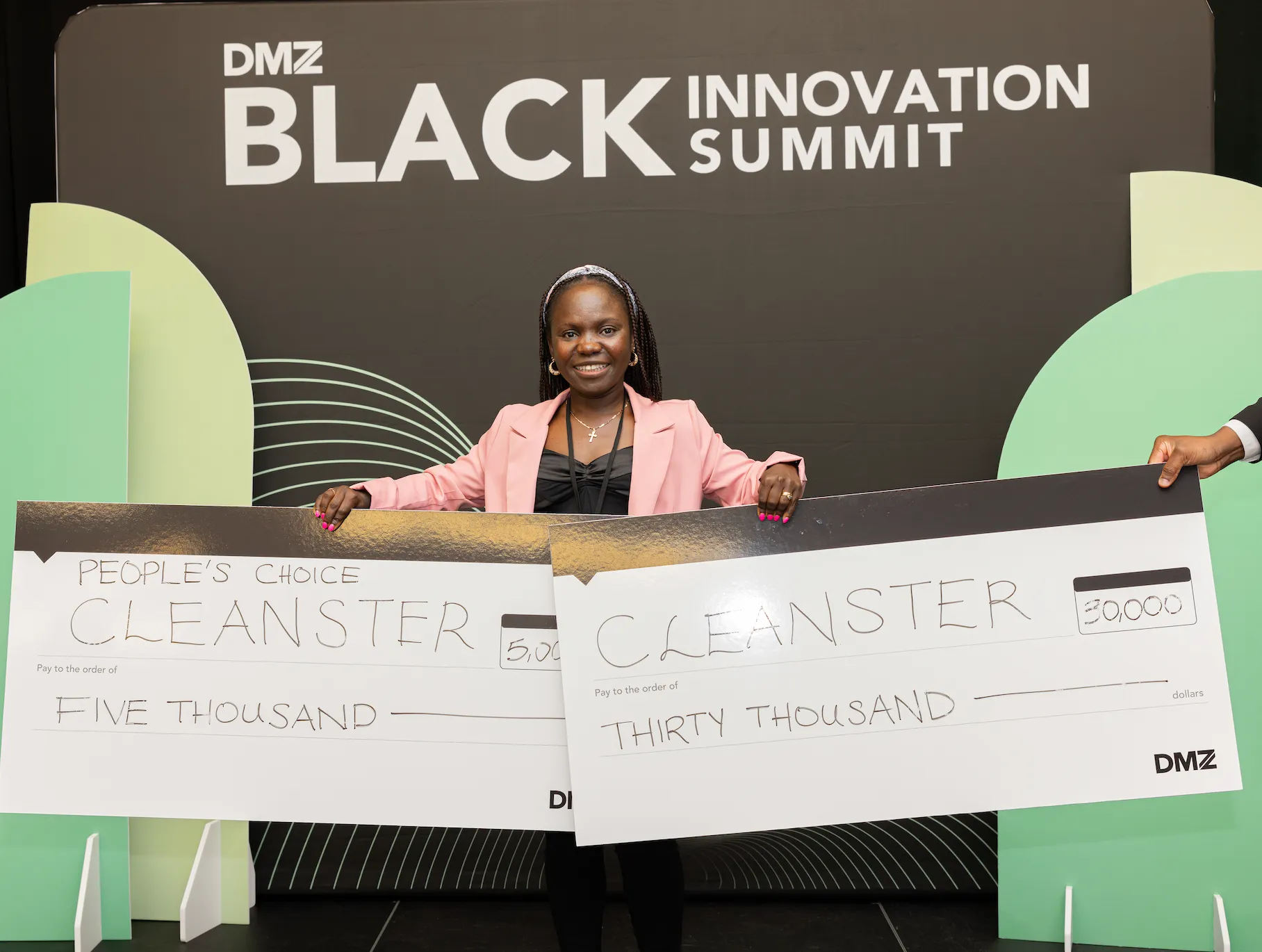
#5: Doubling down on early stage founders.
In 2020, our accelerator program was thriving. It was built to support later-stage startups looking to scale and it delivered. But when the pandemic hit it exposed a different gap—early-stage founders weren’t getting the support needed to survive let alone grow. Most would have stayed the course. We chose to pivot and stepped away from a successful program and returned to our roots, building hands-on support for early-stage founders. There was pushback but DMZ has always been guided by impact not optics. Leaving something good to build something needed is never easy.
#6: Expanding globally in a time of uncertainty.
Between 2020 and 2022 while the world was shutting down, DMZ was opening up. We launched new hubs in Japan, Egypt, rural Ontario and more—moves that to many seemed wild. The ecosystem questioned why we were expanding globally and betting on rural innovation during a pandemic. But with the encouragement of TMU’s President, Mohamed Lachemi, we pushed forward. We knew we could equip partners to build DMZ-powered hubs in their own communities to support local entrepreneurs. Plus, these hubs would give our founders additional markets to tap into. The risk was real but President Lachemi’s vision was clear. Innovation doesn’t stop at city limits and neither do we.
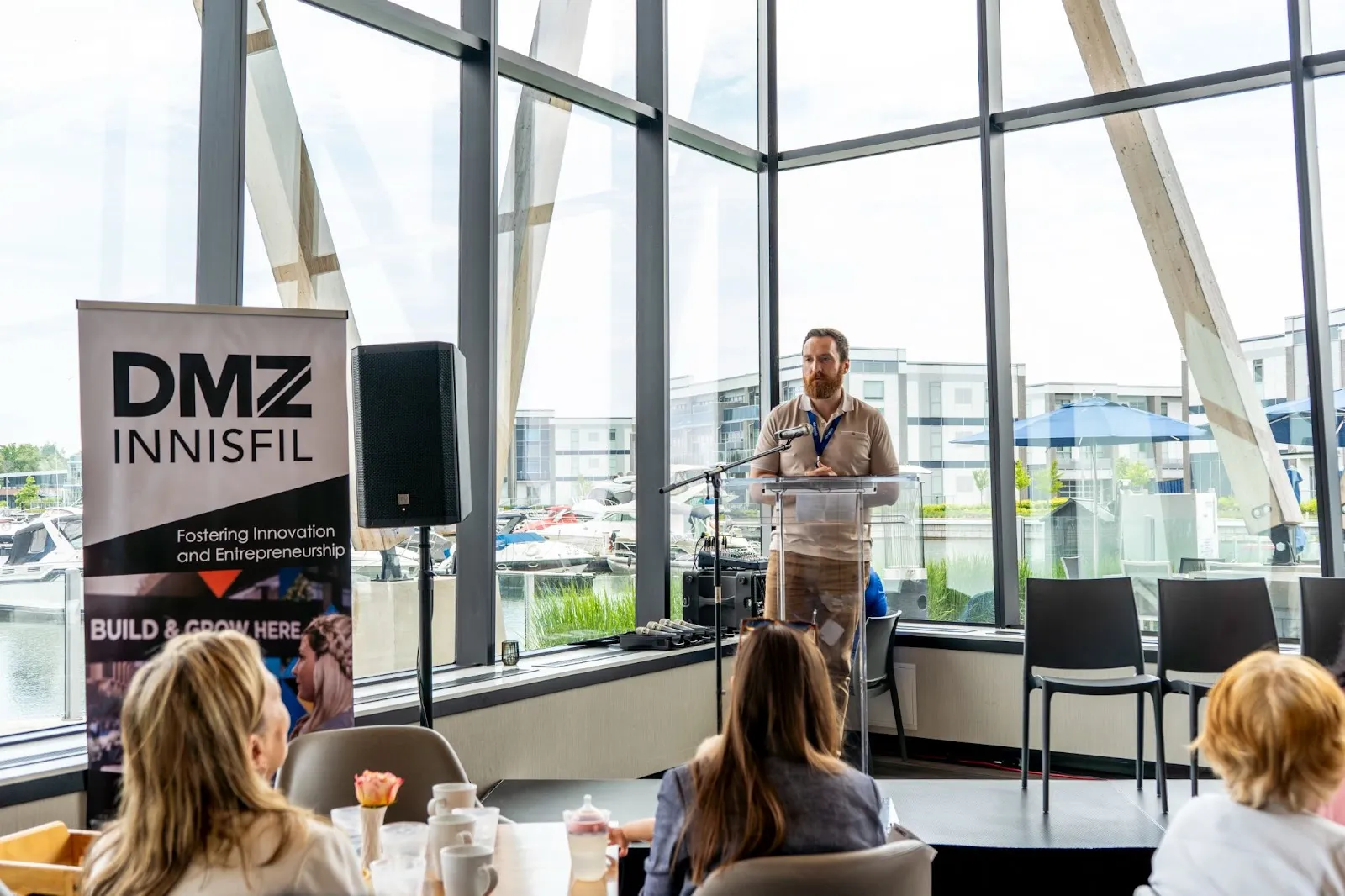
#7: Funding ourselves to fuel founders.
Incubators and accelerators can’t rely on a single stream of funding, especially in markets that move fast. So we made a shift in 2021 and diversified. We formalized a new arm of DMZ operations focused on enterprise services and consulting, giving us the resources to support our core mission of backing founders. Now we work with governments, corporations and innovation hubs to build startup ecosystems worldwide. Whether launching incubators or designing programs, we bring the playbook and network to make it happen. This isn’t just revenue. It’s resilience.
#8: Stepping up when Canada needs it.
Time and again, when Canadians face challenges, DMZ responds by supporting founders creating solutions on the front lines. In 2020 global supply chains were under pressure, so we launched a dedicated program to support startups solving logistics breakdowns using AI. In 2023 housing was shifting fast, so we introduced our PropTech Stream to help startups reimagine how we live using technology. And in 2025 as Canada’s housing crisis spirals, we launched the Centre for Housing Innovation—a national hub that brings together builders, municipalities and entrepreneurs to scale housing solutions. Some questioned whether these efforts were a distraction from our core programming. But we knew it was our responsibility to step up
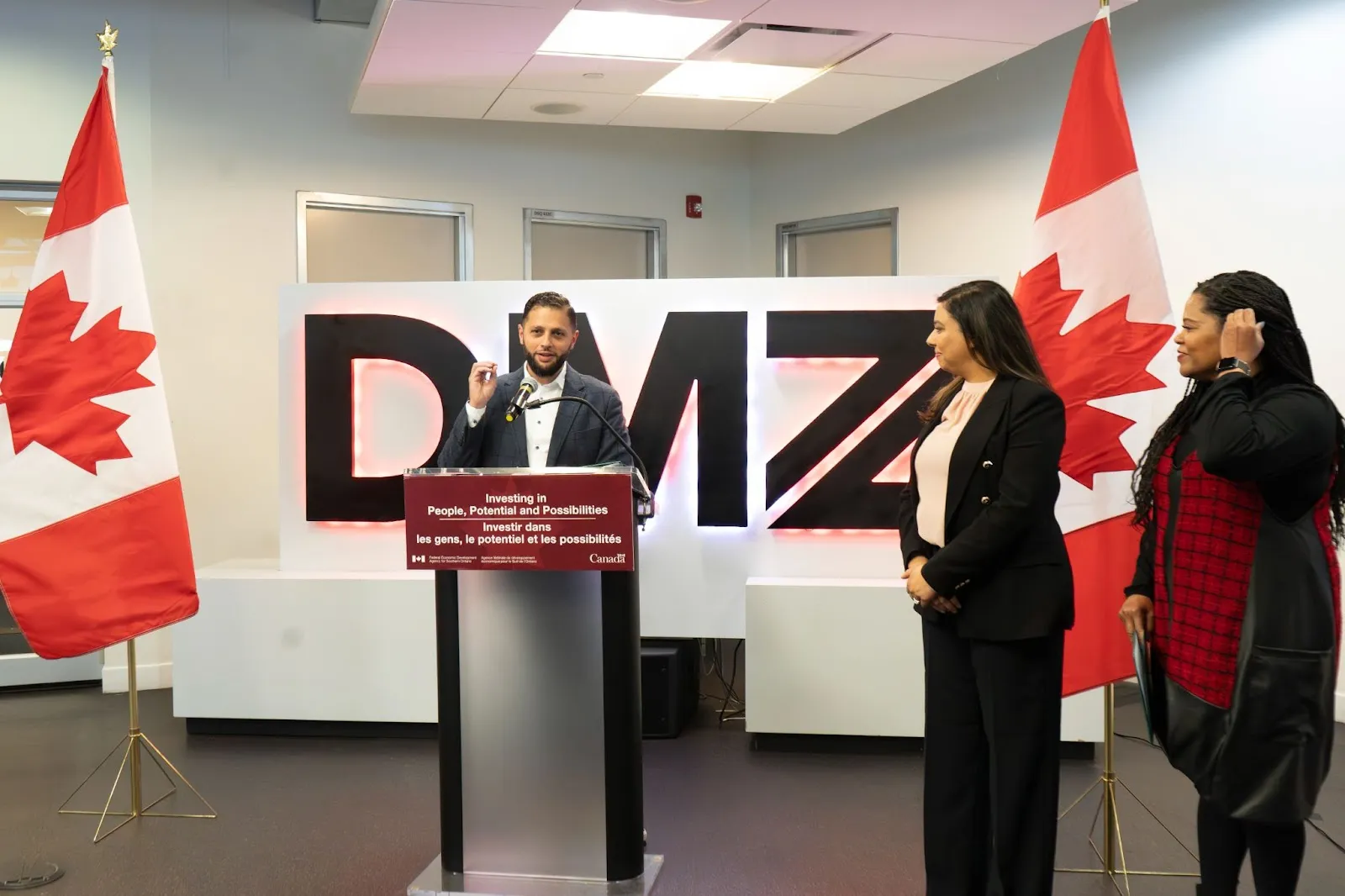
#9: Launching a fund to back founders end to end.
We were cautioned that launching a corporate fund would be tough. But in 2024 our for-profit arm, DMZ Ventures, proved them wrong. With the support and vision of President Lachemi, we took a major step. We launched an investment fund to close the gap between incubation and capital. Unlike traditional investors, DMZ works shoulder to shoulder with our startups every day through programming. That proximity gives DMZ Ventures unmatched insight and completes DMZ’s full-spectrum offerings for startup support. The fund didn’t just fill a gap; it redefined how deep an incubator can go with end-to-end support.
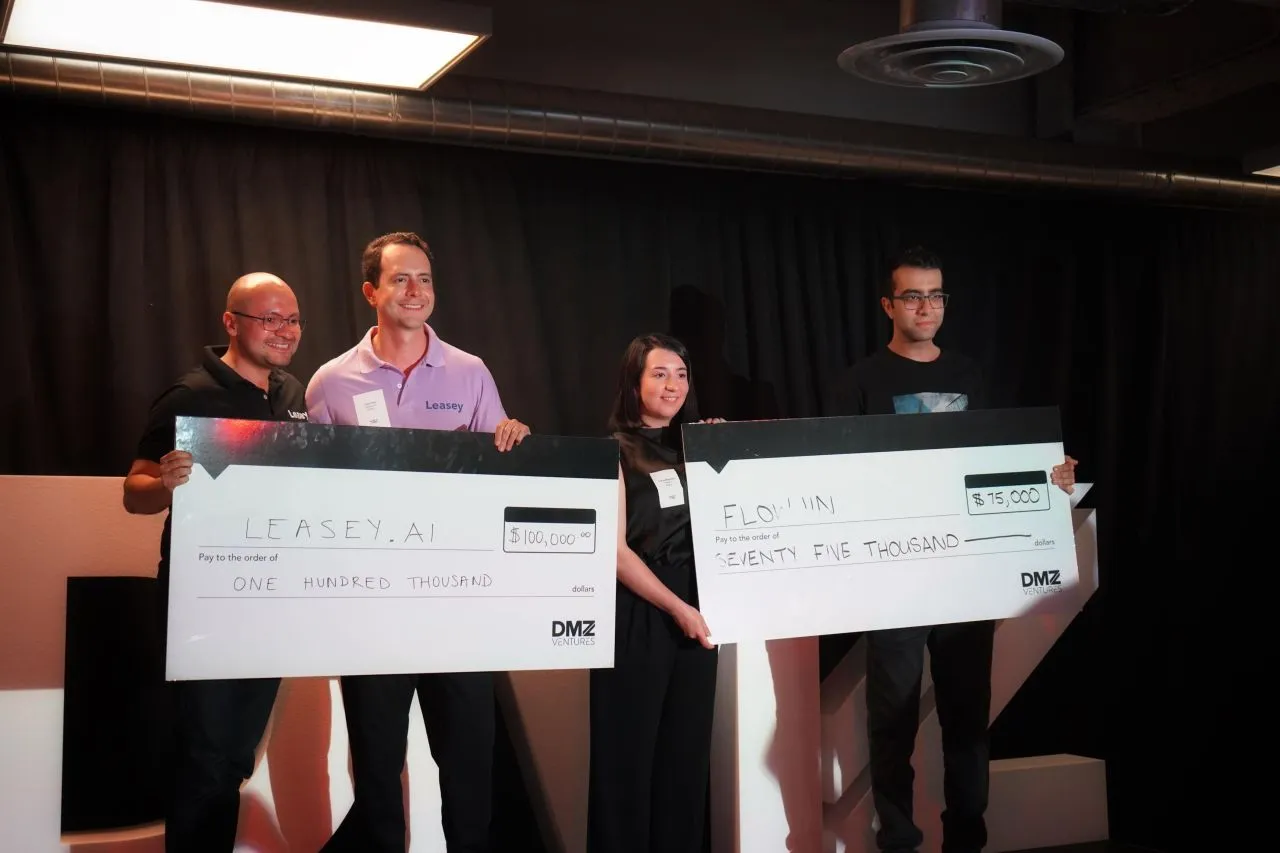
#10: Embracing the camel mindset.
In 2023 the startup world was chasing unicorn dreams. Flashy rounds, sky-high valuations and overhyped headlines dominated the narrative. But we chose a different path. DMZ stepped away from startup theatrics and leaned into the camel mindset, focusing on founders building for longevity not short-term wins. We refined our programming to reflect this shift. More coaching around traction, less focus on chasing hype. Because we believe the future belongs to founders who can go the distance, not just the ones who sprint out of the gate.
Each of these moves tells a story of calculated risk and a relentless drive to build something better.
They weren’t always popular and they certainly weren’t always easy, but they were necessary. Necessary to grow, to evolve and to stay honest about what founders really need.
As we celebrate 15 years of DMZ we’re not just looking back—we’re building forward. The work isn’t done and the playbook isn’t closed. Here’s to the moments that made us and to the ones we haven’t made yet.

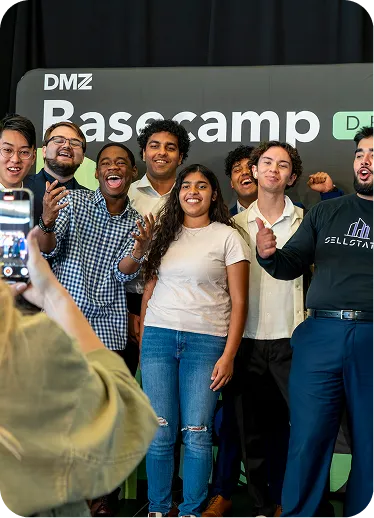
.webp)

